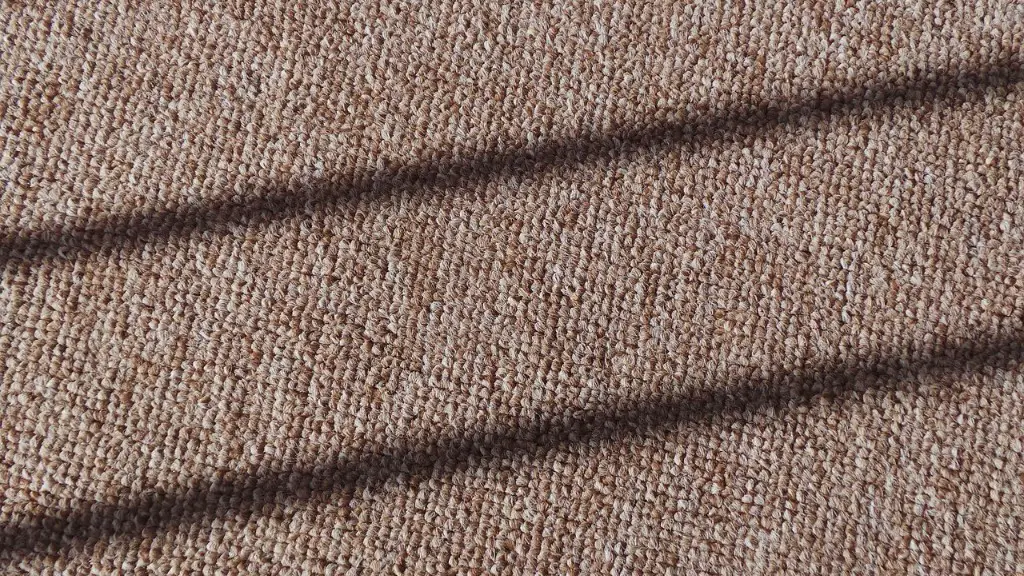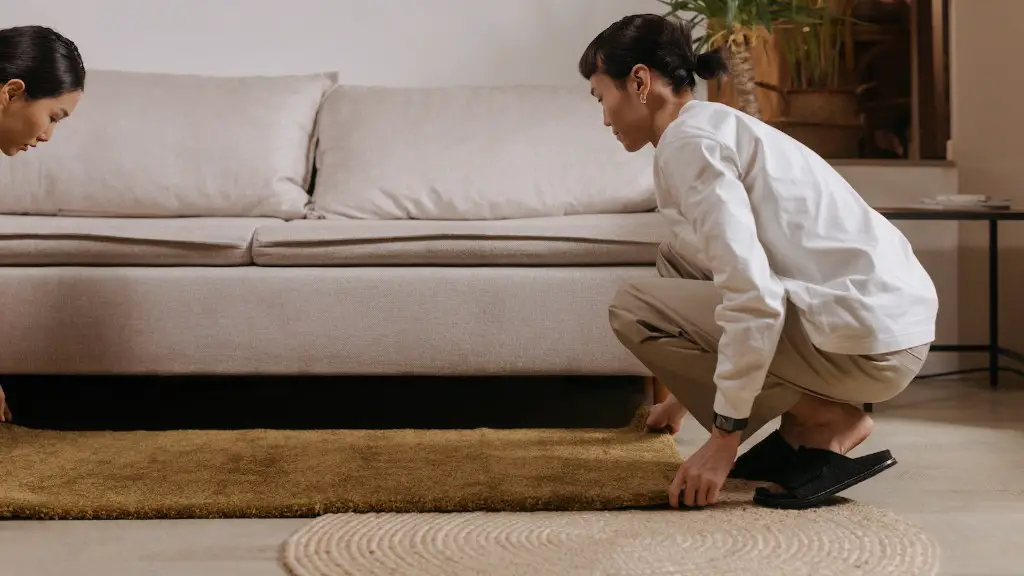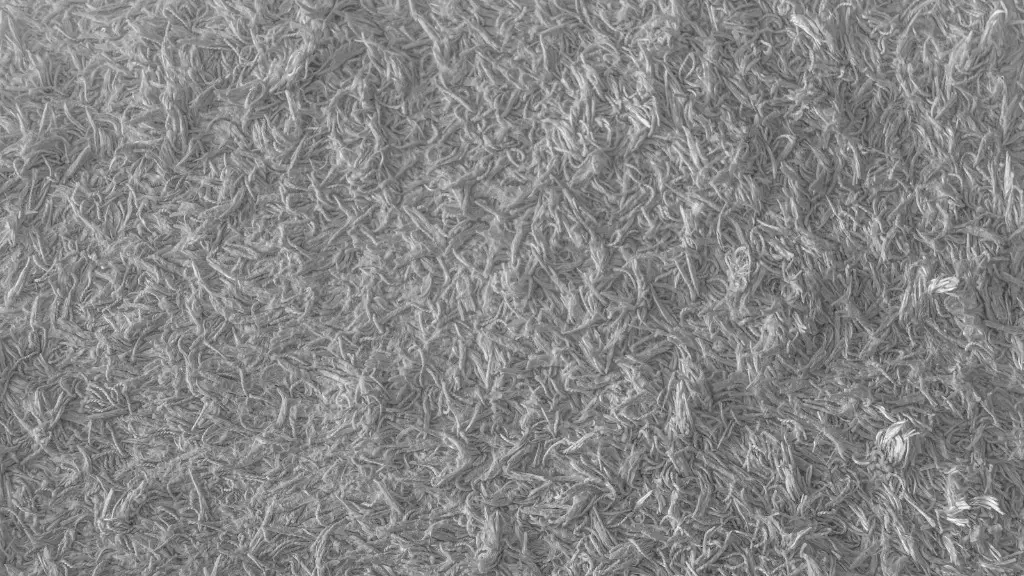If your carpet has a chemical smell, there are several things you can do to remove the odor. First, try airing out the room by opening windows and doors. If the smell is still present, you can try using a carpetshampooer with an oxygenating solution. You can also try sprinkling baking soda on the carpet and vacuuming it up after a few hours. If the smell persists, you may need to replace the carpet.
Assuming you are referring to a carpet that has been treated with chemicals:
1. Ventilate the area as much as possible. Open windows and doors to let fresh air in.
2. Use a carpet cleaner that is specifically designed to remove chemical smells.
3. Be sure to follow the directions on the carpet cleaner.
4. If the chemical smell persists, you may need to call in a professional carpet cleaning company.
How do you neutralize a chemical smell?
If you’re looking to get rid of bad smells in your home, one way to do it is to place bowls of distilled white vinegar around the rooms. The vinegar will help to absorb the odors. Once the house smells back to normal, you can then change any air filters in vents and vacuums (don’t forget to dispose of the vacuum bags) to get rid of any lingering odor molecules.
Carpets can emit VOCs for five years or possibly more, as carpet has been reported to release toxics like PFAS over time with “routine wear and tear” Synthetic carpets are made from nylon fibers with a polypropylene backing, releasing over 40 chemicals including styrene and 4-phenylcyclohexane (4-PC), both of which are carcinogens.
How do you get chemicals out of carpet
And then just the simple shop-vac spray The area that’s damaged with some warm water take your shop vac and just spray the area that’s damaged with some warm water and then just take a shop vac and just vacuum up the area that’s damaged and then just dry it off with a towel.
After construction is finished, you can do a few things to help detox your new home. First, replace the furnace filter. Then, run the furnace fan (or ERV/HRV if you have one) at all times. You can also bake off the toxins and open windows to help air things out. Finally, consider running the bathroom and kitchen exhaust fans and/or getting an air purifier to help keep the air clean.
Does vinegar get rid of chemical smells?
The acetic acid in vinegar is an effective neutralizer of alkaline odors. This means that spraying a vinegar solution in a cooking area can help to quickly get rid of any unpleasant smells. Some people make a diluted solution of vinegar and keep it in a spray bottle for this purpose. This way, they can cover a larger area at once and achieve a quicker fix.
Baking soda is an effective and natural way to neutralize odors in your home. It absorbs odors, rather than masking them, and is safe to use around children and pets.
Does baking soda remove VOCs from carpet?
The baking soda and water filters were both effective in reducing the levels of VOCs in the air. Baking soda appeared to be more effective than water, but both were able to remove VOCs from the air. when used together, the two filters were able to remove even more VOCs from the air.
Acute exposure to chemicals can have short-term and long-term effects on your health. Short-term effects may include: irritation of the skin, eyes, nose, throat, and lungs; headache; dizziness; and nausea. Long-term effects may include: cancer; lung damage; and reproductive damage. To protect yourself from these effects, it is important to avoid acute exposure to chemicals whenever possible.
How long does it take for VOC to dissipate in carpet
Off-gassing is the process of a new carpet releasing volatile organic compounds (VOCs) into the air. This can happen during and after installation, but it generally decreases significantly after a few months. However, carpets can continue to emit VOCs for up to five years (or possibly more). This is because they’re made from absorbent fibres, which means they can also store VOCs and other chemicals from other sources and release them later on.
If you’re considering new carpeting, it’s important to be aware of the potential for VOCs (volatile organic compounds) to be released. The largest release of VOCs will occur in the first 72 hours after installation, but formaldehyde can still be released from the carpet for years after the installation occurs if not treated properly. To minimize the risk of exposure to VOCs, choose carpeting made with low-emitting adhesives and sealants and be sure to ventilate the area well during and after installation.
How long do you let baking soda and vinegar sit on carpet?
A clean and fresh-smelling home is always inviting. Nobody likes walking into a house that smells of last night’s dinner or yesterday’s laundry. There are many ways to keep your home smelling great all the time.
One way to keep your home smelling fresh is to clean it on a regular basis. This means not only doing the dishes and taking out the trash, but also wiping down countertops, vacuum carpeting, and mopping floors.
In addition to regular cleaning, there are also some things you can do to combat specific odors. For instance, if you have pets, be sure to vacuum regularly and wash their bedding often. If cooking smells are a problem, try cooking with spice-infused oils or boiling lemon slices in water on the stove.
Finally, remember to air out your home on a regular basis. Open the windows and doors to let fresh air in and circulate throughout the house. This will help to clear out any musty smells and help to keep your home smelling fresh and clean.
Carpet backing is a common source of exposure to styrene and butadiene, both of which can cause respiratory irritation at low levels of exposure. Long-term exposure to high levels of styrene is associated with nerve damage, and long-term exposure to butadiene is associated with cancer and heart disease.
How do I get rid of chemical smell in my apartment
Airing out your apartment or home and allowing fresh air to circulate can do wonders for the quality of the air inside. This is especially true in the case of stale smells or mild chemical smells from fresh paint or industrial cleaners. By opening the windows and doors for a few minutes each day, you can significantly improve the air quality in your home and create a more pleasant living environment.
If you come in contact with a chemical with a strong odor, you may experience some irritation in your eyes, nose, throat, or lungs. Some people may even feel a burning sensation that leads to coughing, wheezing, or other breathing problems. If you’re exposed to a strong odor, you may also get a headache or feel dizzy or nauseous.
What do I do if I smell a chemical in my house?
If you smell something strange coming from your furnace, it’s important to take action right away. If the smell is faint, try ventilating your home and turning off the furnace. If the smell is strong, call your gas company for instructions. And if you smell smoke or your smoke detector goes off, turn off your furnace immediately.
Vinegar is acidic in nature and thus, it cannot neutralize an acid. The water present in vinegar may help to dilute an acid to some extent but it cannot neutralize it completely. For neutralizing an acid, you need a base like sodium hydroxide.
Conclusion
There are a few things you can do to remove the chemical smell from your carpet. You can try vacuuming the carpet with a strong vacuum cleaner, or you can try using a carpet cleaner with a strong suction. You can also try using a mixture of vinegar and water to clean the carpet.
There are a few things you can do to remove chemical smells from your carpet. First, try airing out the room by opening windows and doors. If the smell is still present, you can try using a mixture of equal parts vinegar and water to help remove the odor.





